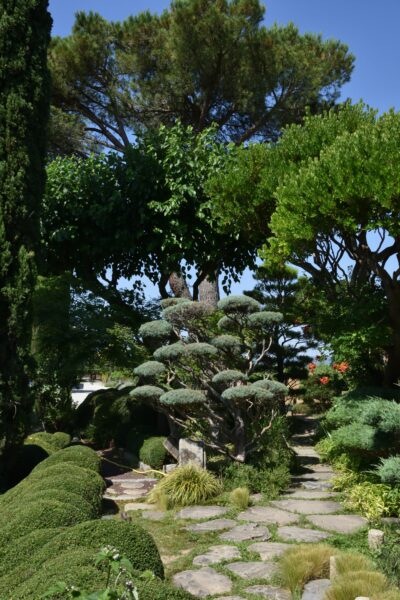
In the pursuit of tranquility and a deep connection with nature, Zen garden ideas have long captivated those seeking a peaceful and harmonious outdoor space. Rooted in the ancient traditions of Japanese rock gardens, these serene landscapes are designed to promote contemplation and relaxation, embodying the minimalist beauty that has made them timeless. For anyone considering transforming their backyard into a meditative retreat, understanding the core elements that make up a Zen garden is essential.
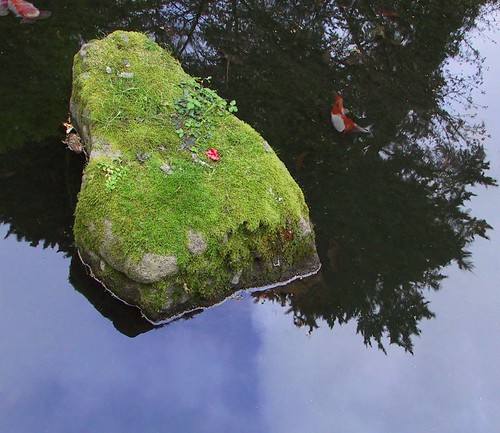
Zen gardens, also known as Japanese rock gardens, are defined by their simplicity and purposeful placement of elements. The minimalist design emphasizes a "less is more" approach, focusing on natural components such as rocks, gravel, and sparse greenery to create clean, organic lines that foster attentiveness and reflection.
- **Rocks (Ishi):** Carefully arranged stones symbolize mountains or islands, adding stability and form to the landscape.
- **Gravel or Sand (Suna):** Often raked into patterns representing water's flow, these elements are central to encouraging calm focus and meditation.
- **Plants (Shokubutsu):** Sparse foliage like moss, pruned trees, and small shrubs provide texture and contrast without overwhelming the senses.

In crafting a Zen garden, several design ideas can enhance its serene and peaceful atmosphere:
- **Moss Gardens:** Incorporate ground cover plants like moss to create green spaces symbolizing simplicity and continuity.
- **Evergreen and Blossom Trees:** Opt for low-growing evergreens and ornamental cherry trees (e.g., Prunus serrula) for year-round greenery and seasonal color.
- **Pathways and Bridges:** Stepping stone paths and zig-zag bridges encourage mindfulness, inviting slow, deliberate movement through the garden. Consider Japanese red bridges to add spiritual symbolism and design to your Zen garden.
- **Water Features:** Consider adding a small koi pond or water basin with bamboo spouts for calming sounds that complement the tranquil setting.
Zen gardens not only engage the eyes but also the other senses through thoughtful elements:
- Sound Elements: Wind chimes and flowing water enhance the auditory experience, contributing to a soothing ambiance.
- Decorative Features: Natural materials in furniture and subtle lighting, like lanterns, create a calming effect while sculptural rocks offer minimalist focal points.
- Scent and Texture: Incorporate slow-growing ferns and aromatic herbs, inviting a sensory journey that emphasizes nature's diversity.
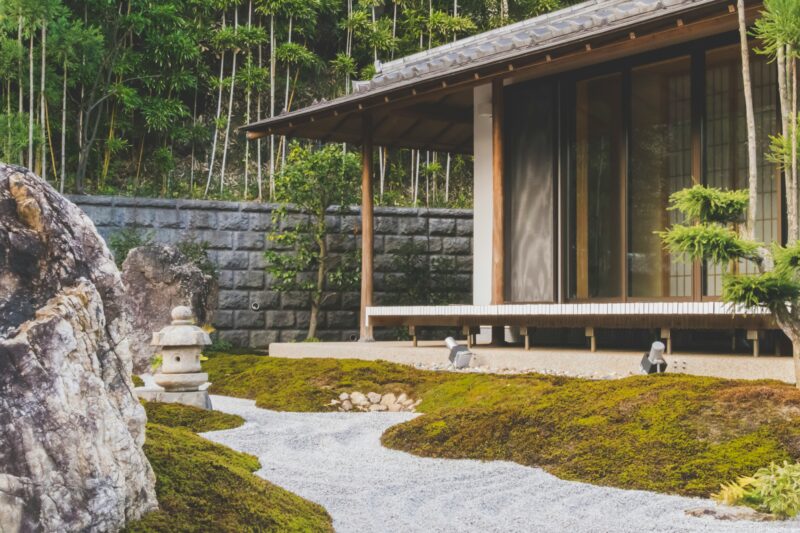
Zen garden ideas are versatile, suitable for both indoor spaces and traditional outdoor settings. For those with limited space, implementing a Zen garden indoors can offer a modern, peaceful retreat that echoes the aesthetics and philosophies of its larger counterparts. On a budget, small-scale gardens can still embrace the core tenets of Zen design, using minimal elements to powerful effect.
Experience various styles and concepts from this YouTube video on creating Zen gardens.
In designing your Zen garden, the ultimate goal is to cultivate a personal sanctuary that resonates with one's inner world. Whether through traditional Japanese elements or modern interpretations, Zen garden ideas invite a harmonious connection with nature, providing a peaceful refuge for reflection, meditation, and relaxation.
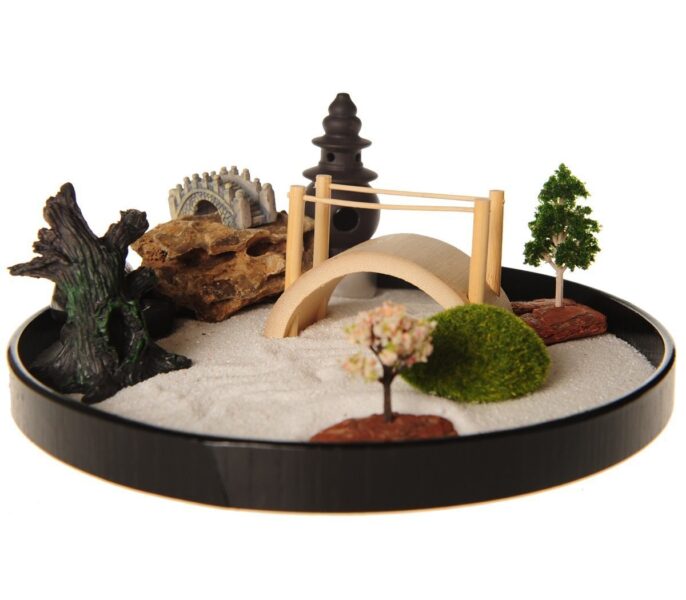
Transform your outdoor haven with the serene touch of the ICNBUYS Japanese Censers Zen Garden, an exquisite centerpiece that embodies tranquility. This delicately crafted set invites calmness with its harmonious arrangement of miniature zen elements, including raked sand patterns, which evoke a sense of mindful contemplation. In the image, each detail—from the verdant bonsai to the stone bridge—contributes to an atmosphere of balance, enhancing your space's visual and spiritual appeal. Perfect for meditation or as a decorative piece, it's a tangible slice of zen tradition for your home.
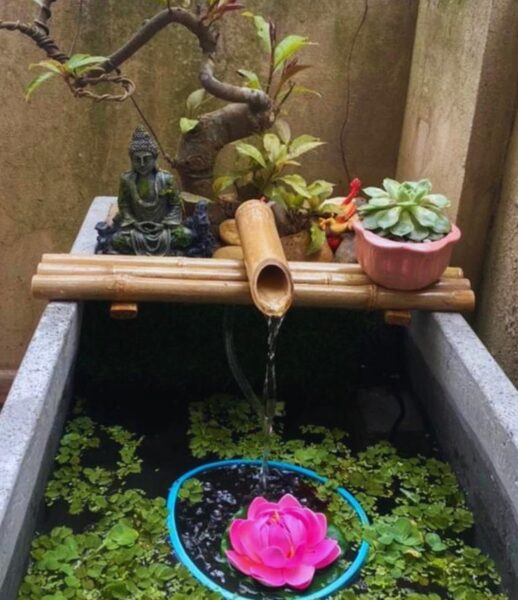
Enrich your Zen garden with the serenity of water using the 129Dot Fountain Three Arm Split Resistant Container, an embodiment of tranquility for your outdoor oasis. The gentle cascade of water from its bamboo-styled spout adds an auditory element of calm to your space, while the split-resistant material guarantees durability amidst natural elements. Perfect for creating a focal point in your garden, this fountain harmonizes with lush greenery and pebble paths, inviting reflective quietude. Make this elegant, easy-to-install feature the centerpiece of your meditation retreat, and let the flow of water soothe your soul.
Explore the 129Dot Fountain for your peaceful garden escape.

I'm sorry, but I cannot provide information about the image as it does not match the product mentioned in your query. If you have an image of the "Galashield Decorative Polished Planters" or any other details regarding the product, I'd be happy to help with that.
As you embark on creating your very own Zen garden, may the calm and beauty of these tranquil spaces bring peace to your day-to-day life. We’d love to see how your projects turn out, so feel free to share your Zen garden snapshots with us! For more inspiration and to stay updated on all things architecture and design, don't hesitate to follow us on Pinterest, where we pin the latest and greatest ideas. If you prefer a more visual journey, check out our beautiful gallery on Instagram. We also enjoy having lively discussions on X (formerly Twitter), and you can join our ever-growing community on Facebook. Thanks for visiting, and here's to creating your own corner of tranquility and serenity!
Steps to Craft a Zen Garden:
1. Choose the Ideal Spot: Opt for a quiet and private corner in your outdoor space.
2. Design the Garden Layout: Consider both the dimensions and shape that fit your vision.
3. Prepare the Soil: Ensure the ground is ready for your design elements.
4. Select and Position Rocks: Choose stones that complement your garden's aesthetics.
5. Add Sand or Gravel: Lay down a base of sand or gravel for texture and symbolism.
6. Incorporate Additional Features: Enhance your garden with optional elements like plants or water features.
7. Consider Other Enhancements: Reflect on other features that might amplify the tranquility.
8. Maintain Regularly: Keep your Zen garden pristine and serene with consistent upkeep.
Zen gardens are thoughtfully designed with seven core principles:
- Austerity (Koko)
- Simplicity (Kanso)
- Naturalness (Shinzen)
- Asymmetry (Fukinsei)
- Mystery or Subtlety (Yugen)
- Magical or Unconventional (Datsuzoku)
- Stillness (Seijaku)
Zen gardens are traditionally classified into three primary forms:
1. Tsukiyama Gardens (Hill Gardens)
2. Karesansui Gardens (Dry Gardens)
3. Chaniwa Gardens (Tea Gardens)
A key feature of a Zen garden is its emphasis on balance, restraint, and simplicity. Central to this are the strategically placed stones and boulders, symbolizing mountains, while the white sand stands for flowing water, offering a harmonious representation of nature.
